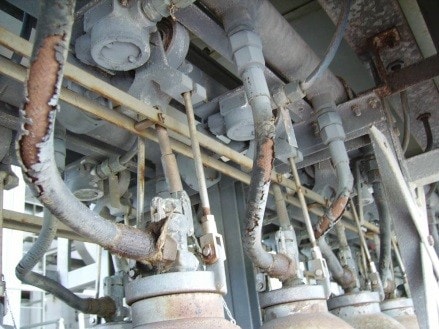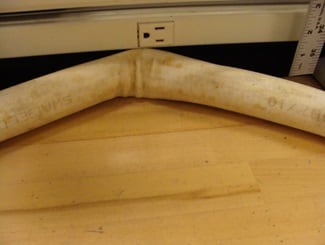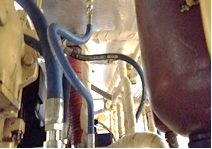Extending the Life of Hoses
Extending the Life of Hoses – How Long Will a Hose Last?
Written October 2019
It depends……
This is a very common question and one that is rather difficult to answer. The same hose can have two very different life cycles depending on the variability of the application parameters. There is often a good-better-best product selection depending on the application. Let’s discuss how we can ensure you have optimal uptime through proper education and awareness.
Most hose failures are due to factors that can be controlled. By avoiding one or all of these pitfalls, you can maximize the life of your hose.
Right Hose, Wrong Application: Hoses typically fail within a few inches of the end connections.
Choosing quality, proper end connections and designing a suitable layout should eliminate most failures. Bear in mind pressure surges that challenge the rated working pressures, avoiding applications with pressure surges or temperatures that exceed the rated limits should all be considered when selecting the proper hose for the application.
Right Application, Wrong Hose: Use of rubber, metal, or even PTFE-wetted parts in the wrong service can be prevented by checking full compatibility with wetted hose materials before installation. PTFE-lined hoses are permeable and mostly unable to achieve more than moderate vacuum service in light gas service.
How do we treat hoses?
Fundamental training goes a long way in equipping plant staff with awareness of correct procedures for hose installation and maintenance.
Common hose issues – using incorrect lengths & causing stress on end connections
Tested Hose Works Better
Poor quality components or choosing a hose solely on low bid can lead to high costs associated with maintenance, safety, and lost fluid of compromised equipment. You should expect a product to work well. If there is any doubt, take advantage of the manufacturer’s technical support. Choose your hose wisely!
Let’s face it, we know most facilities look at hoses as a disposable commodity and don’t think twice about replacing. Following best practices from the start can solve the majority of issues and your hoses can last longer, provide more safety, and fit all system requirements.
Have any additional questions? Email me or our Technical Support team!



